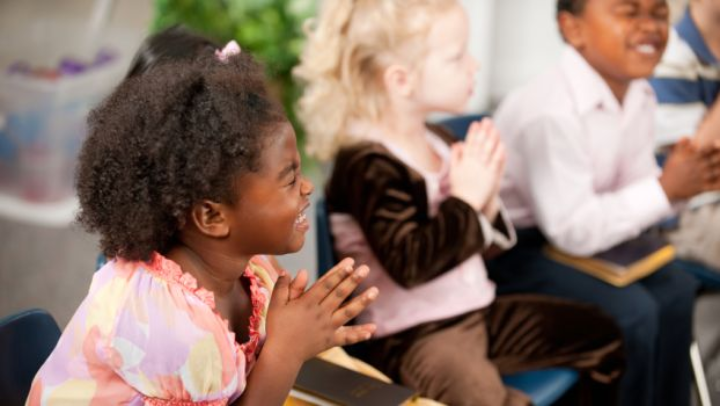Our children will experience more change, see more places, learn more things, and be exposed to a greater variety of people and cultures than any other generation in the history of humankind. To succeed in this complex and diverse world, they'll need to develop the capacity for tolerance and respect.
-
How a Sense of Security Is Crucial
Both tolerance and respect emerge in children who feel safe. There are two aspects of this sense of safety. The first is a belief that one is special, valued, and accepted. This develops when the most important adults in a child's life repeatedly tell and show her how loved she is. When your child feels this unqualified acceptance, it will be much easier for her to accept others.
The second key element depends on how threatened a child feels by new experiences. From brainstem to cortex, our brains have dozens of neural systems involved in reading and responding to potential threats. The brain will categorize new experiences as negative and potentially threatening until it is proven otherwise. All new situations or novel stimuli, therefore, activate the stress-regulating neural systems in the brain. If your child is in a safe and familiar setting, she will perceive the feelings from this activation as "excitement." But if she is in an unfamiliar and potentially threatening environment, the same situation will be perceived as frightening.
-
Help Your Child Respect Herself
The people in our lives act as a mirror in the process of building a sense of self: When they give us attention, encouragement, and praise, our reflections are clear and positive; at other times, our interactions may make us feel unattractive or incompetent. When made to feel special and valued, a child grows to respect herself, and a solid, positive sense of one's self allows the maturing child to respect others.
The process of building self-esteem — and the related capacity for respect — is complicated by our tendency to pay more attention to negative stimuli than to positive. One negative comment can become magnified in ways that positive comments cannot easily overcome.
-
Signs That a Child Needs Support
An intolerant child will be judgmental of those who appear different than she is and is likelier to lash out, tease, or bully others. Children who struggle with tolerance help create an atmosphere of exclusion and intimidation for those people and groups they fear. This intolerance can be the first step in bullying. The intolerant child is, essentially, insecure — insecure about her status, skills, beliefs, and values.
When a child is struggling with respect, you may see overt noncompliance and defiance and lack of respect for siblings, you, and your authority as a parent. Almost always this is associated with a poor sense of self, despite the fact that these children will often brag and distort their strengths and capabilities. This bragging is merely a protective shell over a very fragile sense of self.
Another sign of struggle is when a child begins to say, "I'm bad," "I can't do that," "I'm stupid," or "He's better than I am." The child with this poor sense of self begins to limit her opportunities. She doesn't try as hard and, as a result, may end up falling behind her peers and creating a self-fulfilling prophecy.
-
How to Promote Tolerance and Respect in Young Children
- Make your child feel special, safe, and loved. Don't be sparing with words of praise. A loved child learns to love.
- Create learning opportunities about new places, people, and cultures. Expose your child to a variety of perspectives through books, songs, food, and cultural events and celebrations.
- Intervene when you hear or see intolerant behavior. Don't be punitive — help your child learn healthier ways to interact with others.
- Use positive comments to shape and reinforce your child's behavior. Avoid giving instruction using "no" (such as "Don't do that"). Offering helpful alternatives ("Be gentle with your brother") will be more productive.
- Model tolerance and respect. Your child will learn to reach out and be sensitive and respectful of others by watching how you discuss, relate to, and value other people.

